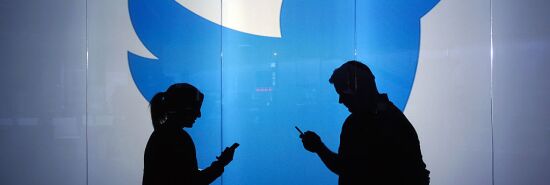
Kick your Twitter addiction
Dan Hannan
Video Embed
My name is Daniel, and I’m a recovering addict.
It has been six months since my last tweet. Tearing myself away from those dopamine hits was, if anything, tougher than it was for me to quit cigarettes 25 years ago.
META DEVELOPING TWITTER COMPETITOR SIMILAR TO MASTODON
Tobacco is incidentally addictive. But Twitter employs the best neuroscientists in the business to keep its users hooked.
There is another difference between the two narcotics. Shortly after I stopped smoking, the practice began to be driven out of public places. I don’t breathe cigarette fumes on trains or in restaurants. I barely think about tobacco at all.
Twitter is much harder to avoid. As a columnist, I sometimes need to look at it to follow a news event. But even if I deleted my account, rather than simply ceasing to tweet, that cheerful blue bird would follow me wherever I went. You see, the entire news ecosystem has become Twitterized: impatient, ill-tempered, intrusive, inaccurate.
Screen addiction has shrunk our attention spans. We crave, with terrifying immediacy, the sweet opiate of having our prejudices confirmed. Most newspapers have adapted, blurring the distinction between news and comment and becoming more clickbait-y in tone. Yes, there is a counterculture in the form of long-read pieces and in-depth podcasts. But who can doubt that the prevailing tone is angrier and more censorious than it was 15 years ago?
It could be argued that Twitter has not so much altered as unmasked us, revealing the Swiftian yahoos who snarl and gibber under our adopted layers of civility. The things that make Twitter ugly — the lies, the pile-ons, the hideous demands to cancel people for infelicitous phrasing — are not new. Most civilizations practice forms of vendetta, public shaming, and ostracism. People are drawn to what the late Jonathan Sacks, Britain’s revered chief rabbi, called “altruistic evil” — nastiness supposedly justified because it is wielded in defense of the good guys. Twitter exaggerates and accelerates these things, but it did not create them.
There is one way, though, in which it has indisputably altered people’s behavior.
Because the 280-character format rewards simplistic and emotive statements, especially those that stigmatize or slander an opponent, sensible people begin to say idiotic things. Worse, they start to believe the things they tweet because they don’t like to think of themselves as applause-chasing shysters who will say anything for the “likes.”
The biggest story in Britain this month involved the former England soccer captain Gary Lineker, who anchors the main TV soccer program. Lineker was briefly suspended by the BBC when he refused to apologize for a tweet in which he called a proposed crackdown on illegal immigration “an immeasurably cruel policy directed at the most vulnerable people in language that is not dissimilar to that used by Germany in the 30s”.
I will spare you the details of the row, which saw one of those polar switches: People who normally go along with cancel culture defended free speech, while conservatives cretinously called for Lineker to be sacked. The point is that Lineker’s descent from goal-scoring hero to posturing imbecile — he aimed the Nazi jibe at Home Secretary Suella Braverman, a brown woman whose children are descended from Holocaust survivors — was played out on, and largely caused by, Twitter. That’s what the wretched thing does: It lets us watch good people become deranged.
I fear that something similar might happen to Elon Musk. True, Musk is already eccentric. It has always struck me as wild that being called “Elon Musk” isn’t even in the top five weirdest things about him. Maybe he has always been as odd as his tweets imply. But we didn’t have to see it until now. Like former President Donald Trump, he has been degraded by the medium. Holders of grand positions always are.
CLICK HERE TO READ MORE FROM THE WASHINGTON EXAMINER
Rupert Murdoch, for example, used to tweet in a sober and sensible way — I would call it dignified if such a thing were possible on Twitter. But the very fact of being there tarnished him by association. On the day of his most recent wedding, in March 2016, he posted his final message: “No more tweets for ten days or ever! Feel like the luckiest AND happiest man in world.”
Murdoch had worked out that being on Twitter did not improve anyone’s impression of him or allow him to disseminate his ideas or put him in touch with interesting people. Rather, it dragged him down to the level of the halfwits and trolls who make the most online noise. He did not need to be there. Neither did I. Neither do you.
